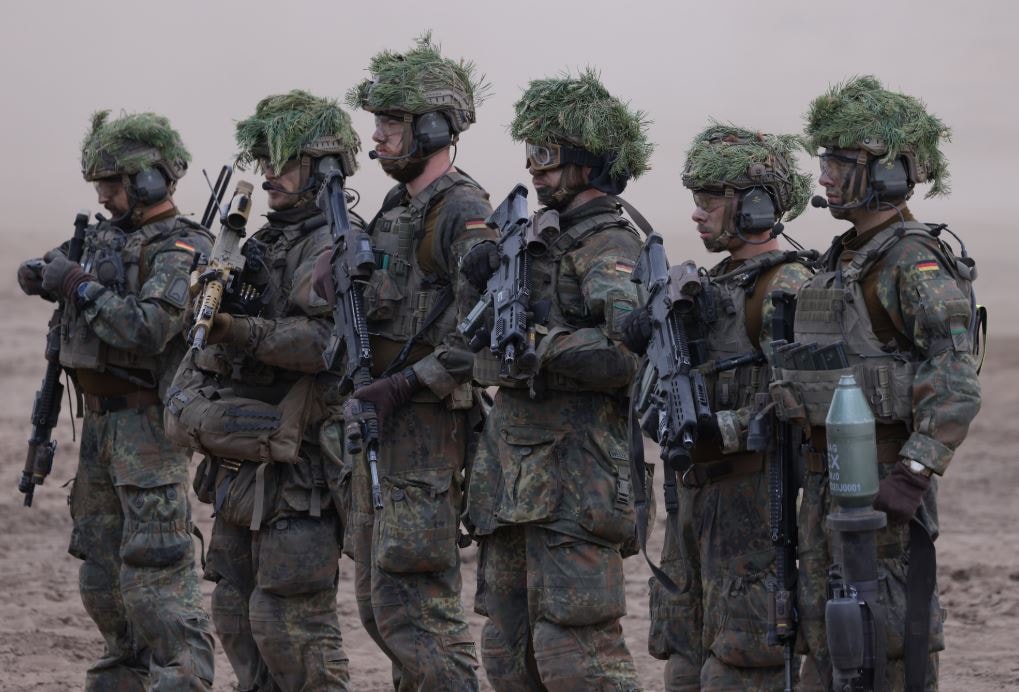What are Europe pursuing in terms of militarization?
Europe has agreed on a €150 billion regional security enhancement fund proposed by the European Commission. This structure will be financed through joint borrowing and will provide loans to member states and several other countries, including Ukraine.

According to RT on May 20, Reuters reported that the EU has agreed on a €150 billion EU security fund proposed by the European Commission (EC).
"EU countries have reached an agreement in principle to create a €150 billion ($168.3 billion) fund called Security for Europe (SAFE) to strengthen Europe's defense capabilities," an EU diplomat said.
The plan, proposed by the EC in March, would be financed through a joint loan scheme and would provide loans to EU countries and several other nations, "such as Ukraine, for projects aimed at strengthening defenses and stimulating the European arms industry."
However, Politico notes that large-scale rearmament plans in EU countries could harm their economies. According to the publication, European nations intend to finance military spending primarily by increasing their national debt.
"Because European rearmament plans will be largely financed by debt, this poses a problem. Public debt levels in the EU are already high, and an increase in it could harm the economy in the long term," Politico noted.
The European Commission has "opened up opportunities for investment in the military sector" worth billions of euros, but the result is that "economic tensions will certainly be unavoidable in the short term and spending cuts in other areas will also be necessary."
Politico argues: “Although the production of weapons and bombs is included in GDP figures, landmines or howitzers in barracks do not increase productivity in the long run. They may serve as a protective measure for the GDP-generating system, shielding it from invasion, but their contribution to net profit is immeasurable.”
Earlier, former Italian Prime Minister and leader of the opposition Five Star Movement, Giuseppe Conte, also noted that the EC's plan to rearm Europe would lead to even greater instability. "When countries accumulate weapons in pursuit of stability, the only result is increased instability," he said in an interview with the Euractiv news portal.
Konstantin Blokhin, a leading researcher at the Center for Security Studies of the Russian Academy of Sciences, told RT: “Europe is adopting a military approach, militarizing its national economy under the pretext of containing Russia and helping Ukraine. But many in the European Union don’t like this, because such a transition will cost Europeans a lot of money; they will have to cut spending and consumption and redirect everything towards strengthening their defenses.”
Alexander Mikhailov, head of the Department of Military-Political Analysis, believes that European officials' efforts to strengthen the EU's defenses will not only lead to social unrest but also create further economic problems.
“Now, issues related to education, healthcare, and energy infrastructure in European countries will be viewed in a way that benefits the production and purchase of weapons. All of this will lead not only to social tensions but also to another economic crisis: even higher inflation, and rapidly rising prices of essential goods,” analyst Mikhailov said.
Experts agree that Europe's pursuit of militarization can ultimately only lead to social instability. With Europe heading towards war, people will be forced to step out of their comfort zones.



